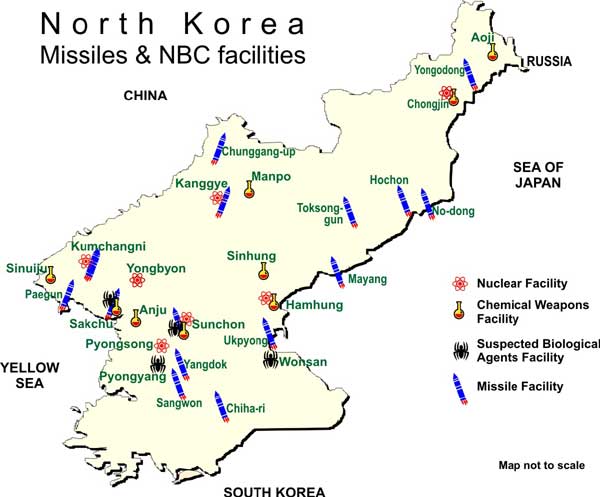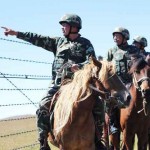 Events in the Korean Peninsula have just been pulled back from the brink of a major disaster which could engulf the Asia Pacific region and impact the world at large.
Events in the Korean Peninsula have just been pulled back from the brink of a major disaster which could engulf the Asia Pacific region and impact the world at large.
North Korea appears to have suspended its sixth nuclear test mainly due to pressure from China. This is the view of some Chinese experts. Pyongyang made a serious diplomatic mistake by attacking and even threatening Beijing in a recent commentary carried by its official news agency, the KCNA. But there is no guarantee that the stability may not deteriorate again. North Korean leader Kin Jong-un remains unpredictable.
The North Korean nuclear issue including missile development programme are parts of a whole and very complex. There are several parties which have contributed to things coming to this pass, including Pyongyang, Beijing, Washington and to a certain extent, Seoul.
The “Agreed Framework” deal reached by the Clinton administration and North Korea in 1994 stipulated that Pyongyang would freeze its Yongbyon nuclear facility in return for economic assistance and certain diplomatic concessions. Although progress was slow, North Korean leader Kim Jong Il’s emissary was received by Clinton, and US Secretary of State. Madeleine Albright visited Pyongyang and met Kim in 2000. This was the highest point thaw reached between the two countries. When George W. Bush came to power in Washington, hard-line conservatives led by Vice President Dick Cheney turned the table over. The Framework Agreement was sabotaged quoting distrust. North Korea was listed in the “Axis of Evil” along with Iran and Iraq.
North Korea watched with alarm the unfolding of the Bush administration’s foreign policy of regime change. Iraq was attacked on false and manufactured evidence and Saddam Hussain as elected President was executed. Believing in American promise, Saddam had virtually disarmed his military, shut down nuclear and CBW facilities and discarded his Scud missile production. The US then went in for the spectacular attack. Saddam had no chance. Then came the ouster of Libya’s Muammar Gaddafi. The Americans had no end game, leaving both countries in turmoil and festering jihadism.
Finally Syria had been targeted, with the sole aim of ouster of President Assad. China, meanwhile, has played all sides. It kept Pyongyang healthy, while periodically voicing common stand with the international community urging North Korea to curb its nuclear ambition. There have been instances when it revealed it was putting pressure by reducing oil supply to Pyongyang, or reducing coal imports among other things. But these were one off actions for brief periods. North Korean companies including front companies have been operating in China. More than 80 percent of North Korea’s foreign trade is with China, and it is totally dependent on China for its oil.
North Korea’s nuclear and missile programmes, howsoever clandestine, are not new, and that is common knowledge. North Korean scientists and engineers have worked in China for long periods of time, though clandestinely. North Korea’s collaboration with Pakistan has taken place on Chinese soil. Pakistani aircraft carrying material to and from North Korea for Shaheen missiles refuelled secretly in Beijing. Much came out in the public domain when Pakistani nuclear scientist Dr. A. Q. Khan’s nuclear black market was busted. Photographs emerged last year of a North Korean truck-mounted missile launcher that had an uncanny resemblance to a Chinese launcher. Perhaps it may have been the work of Chinese arms exporter without the knowledge of the government. Be that as it may, there is the question of liability and responsibility.
Has China done enough to curb the North Korean WMD programme? Clearly not enough, and there was complicity earlier on. What was China’s strategy? If the Chinese thought they would be able to control a nuclear North Korea and use it as a card against the US, Japan and South Korea periodically, they completely misjudged the North Korean regime.
China’s plea that it lacked influence on North Korea is not completely true. After Chinese President Xi Jinping agreed with US President Donald Trump on sanctions against Pyongyang, North Korea showed some nervousness. It retorted in the practised manner and threatened China. Its official news agency and mouth peace, the KCNA, warned that, “China should no longer recklessly try to test the limitations (Sic) of our patience”. The commentary further threatened “grave consequences for the reckless act of chopping down the pillar of DPRK-China relations”. It said China should thank North Korea “in an honest manner” for protecting the peace and security of China by keeping out the United States for more than seven decades.
The Chinese foreign minister’s response to KCNA was polite but firm, saying China was “unswervingly devoted to the denuclearization of the peninsula and maintaining peace and security, and resolving the issue through talks”.
China just cannot afford a war in the Korean peninsula and an eventual reunification of the two Koreas. A war would seriously damage the economy and stability of East Asia and South East Asia South Korea will risk huge civilian costs with North Korean artillery bombarding Seoul and other parts of South Korea. A United Korean peninsula will result in democratic forces prevailing (as in the unification of East and West Germany where democratic West Germany prevailed). It would bring the US on China’s shoulder, which would have serious security implications for Beijing.
Equally important, both Koreas have territorial claims on China and a United Korea may bring this issue to the fore.
For the US, a war against North Korea will not be the walk-over it had in Iraq. Unlike Iraq, North Korea geographically is mountainous and the North Korean military will retreat into the mountains and stage a last ditch guerrilla warfare. Its leaders, starting from Kim Jong-un do not care for their civilians’ lives. They may resort to an internal revolution. This projects a disastrous scenario in the Korean peninsula which could take a long time to rebuild. The consequences would be global, and alter the security scenario.
Will the global community allow such a thing to happen? Unlikely, by the time a truce could be implemented, serious damage would have been done. To note, technically the two Koreas are still at war.
The election of Moon Jae-in as President of South Korea could not have come at a better time. A liberal, he wants peace, talks and better relations with North Korea. Pyongyang did not unleash a tirade against him, which is a good sign. North Korea’s recent missile test which impacted near the Russian Coast rather than Japanese waters is seen as a petulant reaction. China’s position on the issue may have deterred North Korea from conducting a sixth nuclear test. But given the track record of the nation nothing can be said with certainty. On the other hand, Trump’s tweets saying he would like to meet Kin Jong-un if the climate is conducive, while surprising, must be appreciated. But then, Trump is given to mood swings and his retraction from hard positions in international affairs have now become legend. He must move away from George W. Bush’s strategy of regime changes. Trump’s recent signal that he is not about to scrap the Iran nuclear deal is a welcome sign.
The only hopeful light over the horizon, at least for the present, will be to revert to the Bill Clinton strategy and the Agreed Framework agreement on North Korea, packaged in a new formulation. China’s proposal of “two suspensions”, that North Korea freeze its nuclear and missile programme. Simultaneously with US and South Korea stopping their anti-North Korea military exercises, needs to be considered.
Hoping that North Korea rolls back its nuclear and missiles programmes and allows IAEA inspectors to return, will be too much to expect. Pyongyang will not give up what it has. This has to be accepted prima facie to start with. President Moon should be given a bigger role and, in time, there must be direct talks been the US and North Korea.




